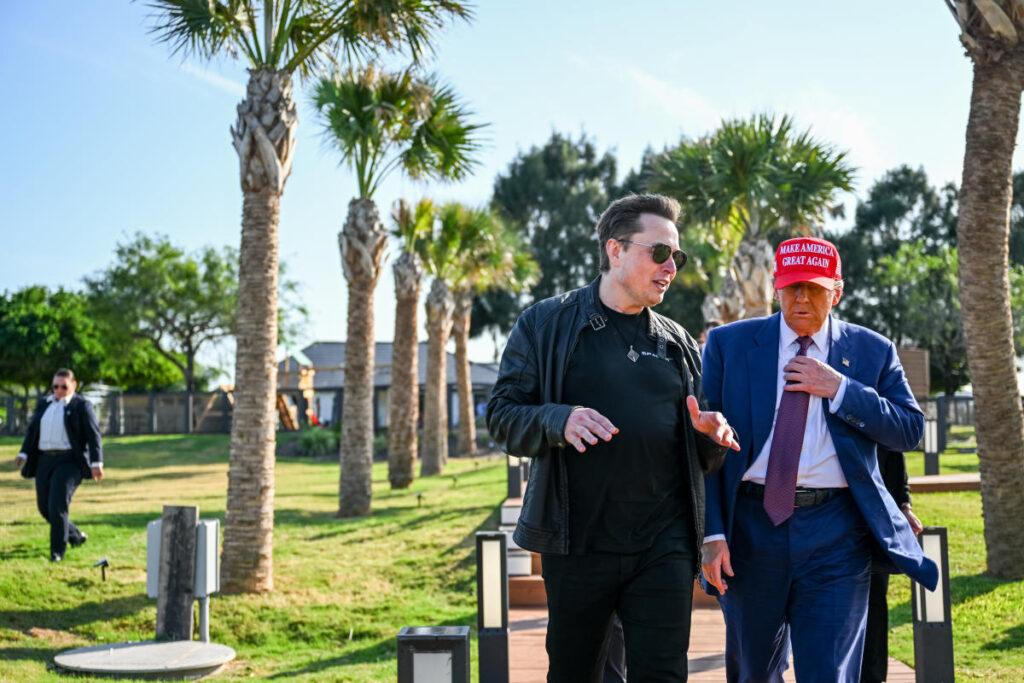Donald Trump and Elon Musk, who refer to each other in such terms as “first buddy”, are not yet in power but are already expressing frustration regarding potential spending constraints that Congress may enforce once they assume their positions. A critical concept for understanding their strategy is “impoundment,” which refers to the president’s ability to not spend money that Congress has allocated. This idea could play a pivotal role in whether Musk, alongside billionaire entrepreneur Vivek Ramaswamy, and their newly formed Department of Government Efficiency realize their ambitious plans, which include a projected reduction of the federal budget by at least $2 trillion.
While Musk and Ramaswamy foresee significant budget cuts, they currently lack the official authority to implement these changes, as it is ultimately Congress that holds the “power of the purse.” However, there are indications that the incoming Trump administration may attempt to modify existing interpretations of this authority. In a recent Wall Street Journal op-ed, Musk and Ramaswamy highlighted the role of impoundment in their strategy, suggesting that Trump will contest current limitations on presidential power regarding appropriated funds, with the expectation that the Supreme Court may back him on this issue.
The controversy over impoundment stems from the Impoundment Control Act of 1974, enacted as a consequence of the Watergate scandal to constrain presidential authority in managing appropriated funds. This law stipulates the process a president must follow if they choose not to adhere to Congress’s funding decisions, essentially requiring a request for permission to diverge from specified allocations. Historically, presidents had utilized impoundment primarily to return surplus funds to Congress; however, this changed notably when Richard Nixon sought to delay funding for an environmental project following Congress’s actions that countered his wishes.
The 1974 law was reinforced by a Supreme Court ruling in 1975, which has been interpreted to indicate that a president cannot employ impoundment to undermine legislative intent. Trump has previously flirted with this authority, particularly during his presidency when he withheld military aid to Ukraine to leverage a political investigation into Joe Biden. This precedent of executive overreach provoked significant opposition from Congressional Democrats, who vowed to oppose any further attempts to encroach upon their fiscal authority.
Currently, Trump, Musk, and Ramaswamy appear to seek greater ambition in their plans, possibly wishing to implement strategies that push the limits of impoundment. Trump has indicated their intent to use impoundment as a means to restrict funding further, with Musk openly suggesting ambitions to eliminate entire federal departments. Such aggressive plans will almost certainly face pushback from Congress, as lawmakers are unlikely to readily agree to such sweeping measures.
In addition to these tactics, Musk and Ramaswamy have proposed numerous alternative approaches to achieve their financial goals, which include utilizing recent Supreme Court decisions to reduce regulatory burdens and potentially circumvent civil service protections to streamline federal agency staff. They have also considered targeting areas of the budget where appropriations have lapsed, although many of these funds pertain to programs that have broad public support, including veteran healthcare programs. Overall, the dynamic between the executive and legislative branches surrounding spending and budgetary authority will remain a contentious issue, particularly as Trump and his allies navigate their ambitious fiscal agenda.

